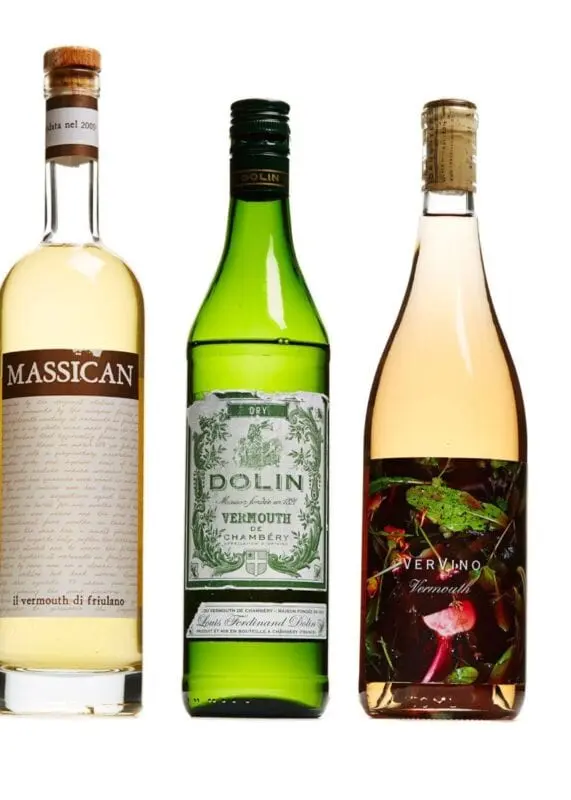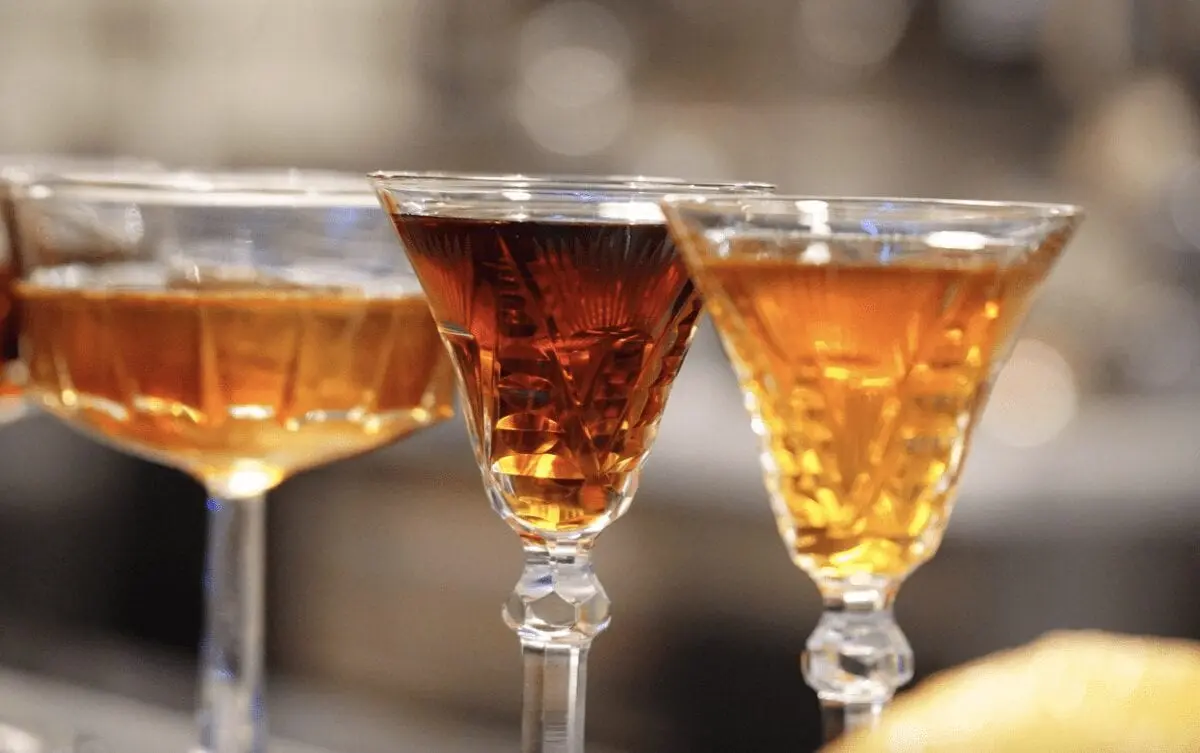Contents
Description
Vermouth (it. wermut – wormwood) – an alcoholic beverage flavored with herbs, spices, and medicinal herbs, with a strength of about 15 to 20. Belongs to the class of strong wines.
The history of aromatic wines goes back to ancient times. The first recipe of vermouth we find in the sources of X-IX centuries BC in Hippocrates works.
The first mass production of vermouth began in 1786 in Turin by winemaker Antonio Benedetto Kapranos. At that time, as the basis of the beverage, they used exclusively white wines. Currently, basic manufacturers use any wine. Due to this, the color of the drink can vary from pale gold to amber and from light pink to deep red.

Vermouth Production
The production of vermouth occurs in several stages. Initially, manufacturers dry all the beverage’s aromatic components, pound them in a powder mixture, pour the alcohol-water solution, and at a constant rotation tank, infuse for 20 days. This time is sufficient for dissolving essential oils. The composition of aromatic components during the preparation of vermouth can include several dozens of species and herbs.
The most common are wormwood, yarrow, mint, cardamom, cinnamon, nutmeg, black elderberry, sweet clover, oregano, elecampane, Angelica, ginger, St. John’s wort, chamomile, Melissa, and others. To give the vermouth its characteristic bitterness, they use quinine bark, wormwood, tansy, Shandra, and oak plant.
Further, they carefully filter the wine infused with extract of herbs. They add sugar, preservative, sweetener, and alcohol to increase the strength and preserve the aromatic substances to the mix.
During the next stage, they cool the mixture to -5°, re-filter, and gradually warm it to room temperature over the weeks.
At the end of all technological processes, vermouth infuses from 2 to 12 months and gets bottled for sale.

There is a world classification of vermouth by the percentage of sugar. There were established 5 major groups of vermouth:
- vermouth-based dry white wines with sugar content less than 4%;
- a white fortified wine, which contains 10-15% sugar;
- based on red fortified wines containing more than 15% of sugar;
- vermouth-based rosé wine with a sugar level of 10% or more;
- the drink, having a very bitter taste and specific, to a greater extent, to balms.
The world’s most popular brands are Martini, Gancia, Noilly Prat, Cinzano, Gran Torino, etc.
Usually, people drink vermouth as an aperitif in pure form with ice or cocktails.
The benefits of vermouth
This beverage was originally a drug that combines the taste of fine wine and medicinal plants.
Vermouth, as in Ancient Greece and modern society, is an excellent antiseptic. It is good to improve digestion and appetite stimulation. Vermouth is widely popular in folk medicine and copes with certain ailments.
As a remedy for coughs colds, people use vermouth with honey. For this purpose, you should heat 100 ml of vermouth to 80°C and gradually add 1-2 tablespoons of honey. Cool the resulting mixture to room temperature and consume daily in three tablespoons a day after meals.
Cure and preventive
You may cure a sore throat with a warm infusion of vermouth and fragrant violets, which you may purchase at the pharmacy. For this, you need to fill 25 g of dry violets with a cup of vermouth and infuse them for two weeks in a dark place. The ready tincture can retain its properties for three months. Therefore, it is possible to prepare a reserve with the onset of cold weather. The resulting solution is best for gargling, pre-spreading 1 tablespoon of liqueur in 0,5 glasses of warm water. Rinsing should take place at least 2 times a day.
A very effective tool for preventing ulcerative diseases of the gastrointestinal tract is a tincture of vermouth and aloe. To prepare the tincture, you need 3 small leaves of aloe. Grind them in a meat grinder, mix the resulting slurry with 3/4 Cup of honey and leave to infuse for three days in a dark place. Then to the mixture, add 0.5 cups of vermouth, mix well and give another day to infuse. Take a tablespoon of the infusion 2-3 times before meals. The course is going on for 1-2 months. As a result, it significantly reduces the risk of exacerbation.

The dangers of vermouth and contraindications
Because of the large number of plant components, Vermouth is quite risky for people prone to allergic reactions because the ingredients of the drink can cause or enhance allergies.
It would help if you also refrained from drinking vermouth with chronic diseases of the gastrointestinal tract, kidneys, and liver during the disease’s exacerbation.
It is strictly forbidden for pregnant women, women in lactation, and children. This can cause irreparable harm.
Excessive vermouth can lead to severe alcoholism and, as a consequence, to cirrhosis of the liver.









